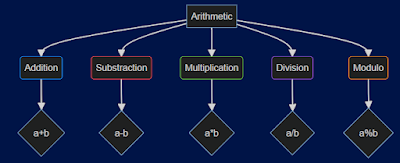Test Your Skills on C Operators

Practice Quiz Practice quiz Unlock the power of C programming by taking the quiz and embrace the confidence that comes with mastering this language. Believe in yourself, you've got this! Before start, if you wish to refresh your knowledge on C operators, Click Here 1. What is the output of the following C code? 1 2 3 4 5 6 7 #include <stdio.h> int main () { int x = 5 ; printf( "%d " , x ++ ); printf( "%d" , ++ x); return 0 ; } A) 5 7 B) 6 6 C) 6 7 D) 5 6 Answer The code will print "5 7" as output. The first printf statement prints the value of x (5) and then increments it by 1, and the second printf statement prints the incre...
